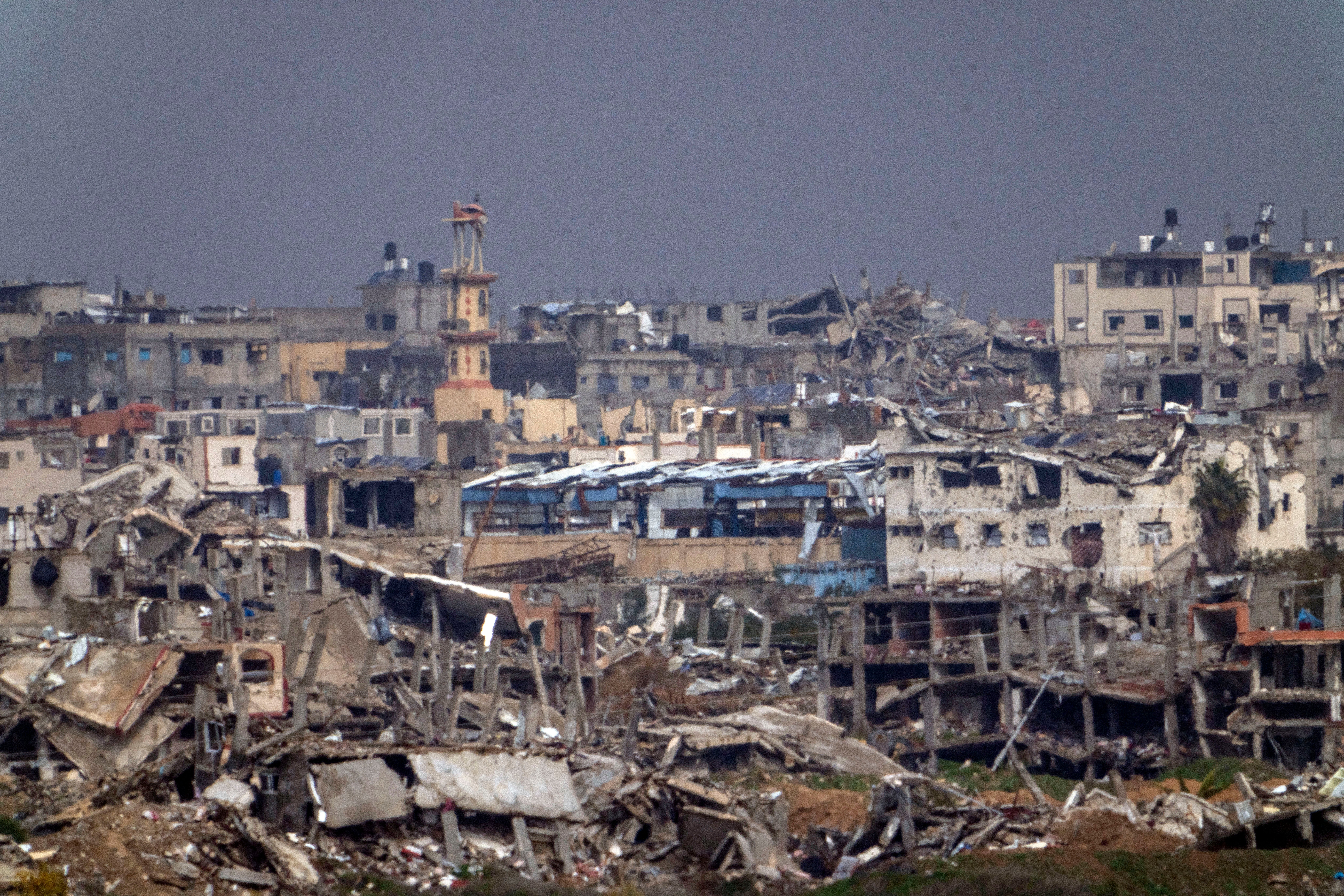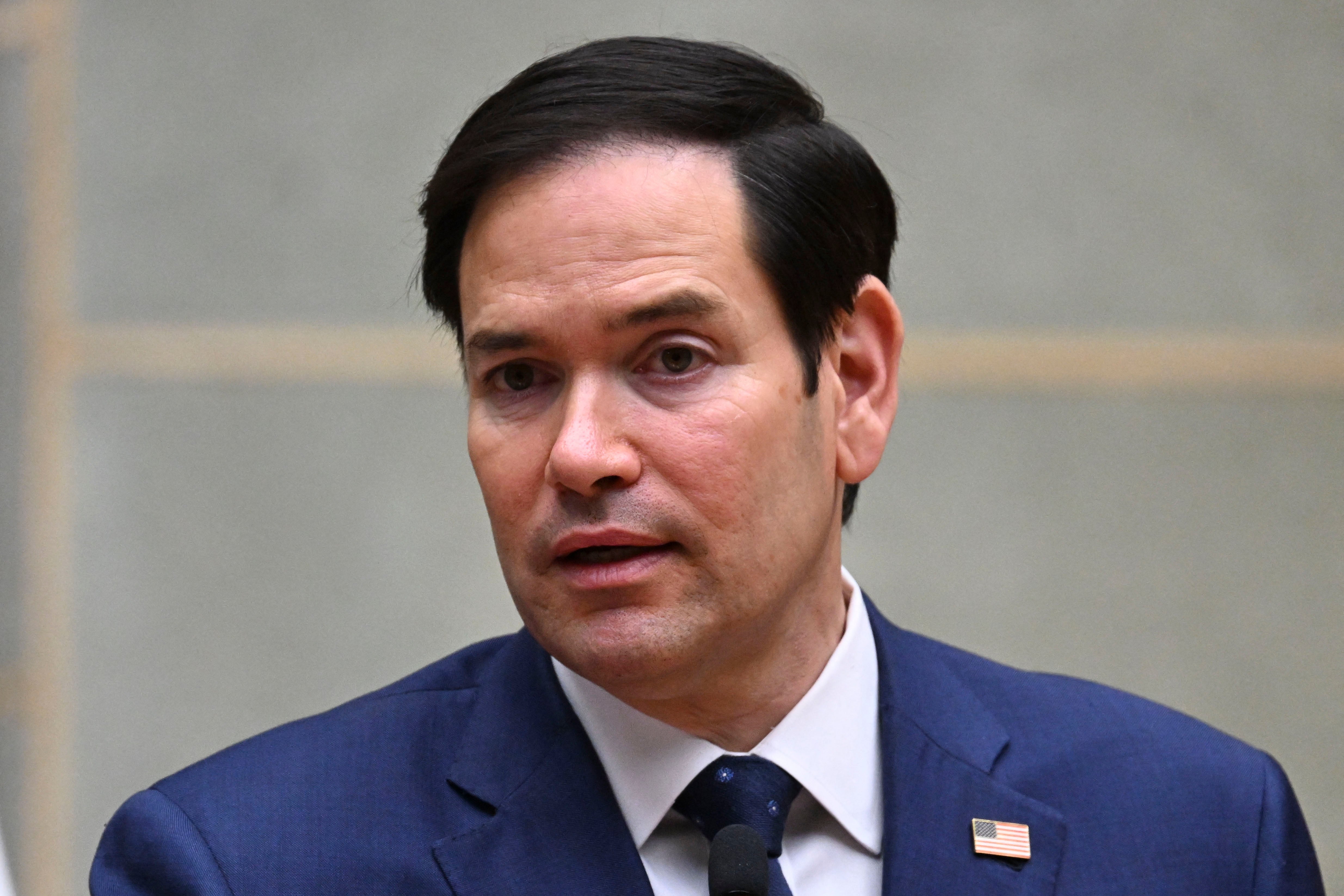Donald Trump continued to push his plan for MAGA-fied peace in the Middle East on Tuesday: the illegal removal of more than two million Palestinians from the Gaza Strip, an act that would likely be considered ethnic cleansing under international law.
But outside of the meeting rooms and cocktail lounges where the Trumpworld elite now congregate in Washington D.C., some experts seemed to think it would not actually even be seriously attempted.
On Tuesday, the US president insisted that Palestinians in Gaza no longer wanted to live there and claimed that the “civilization” had been completely wiped out in the region by Israel’s year-long assault.
“I’ve watched it so long, all the death and destruction of Gaza. A civilization’s been wiped out in Gaza,” Trump said on Tuesday.
"We're not going to buy anything. We're going to have it," he said of the land itself.
“We're going to take it, we're going to hold it, we're going to cherish it. We're going to get it going eventually, where a lot of jobs are going to be created for the people in the Middle East. It's going to be for the people in the Middle East,” he added.
The reaction across Europe and the Middle East to Trump’s plan for the US to “own” Gaza — which he reiterated on Tuesday — has been a mixture of shock and outright dismissal. Arab countries, which were pushing for a two-state solution even before the Biden administration saw it as the last goalpost for a peace agreement, issued a round of condemnations aimed at any attempt to displace Palestinians from Gaza.
That includes Egypt, which refused to take in thousands of Palestinian refugees during the Biden presidency (citing fears of the conflict spreading) and Jordan, whose king joined Trump in the White House on Tuesday.
“I believe we’ll have a parcel of land in Egypt and a parcel of land in Jordan [to house Palestinians forced out of their homes],” Trump said as he joined the Jordanian leader in Washington.

The king said that his country would take in about 2,000 Palestinian children in need of immediate medical attention, but remains opposed to a wide-scale forced displacement of Palestinians. Like other nations, Jordan’s government has denounced the plan as a violation of international law.
Jordan and Egypt’s opposition. backed up by the UN and numerous other nations, is just one reason why few outside of Trump’s loyalist-only circle apparently think his plan has any future.
“This is so ridiculous. It is so beyond – you cannot uproot a people from their land. That is literally the cornerstone of modern international law,” Palestinian-American human rights attorney Noura Erakat, of Rutgers University, told The Independent.
“Biden also proposed this, but the Egyptians pushed back hard and said, ‘there's no way we're going to absorb them into the Sinai’. And so it was abandoned as a plan,” Erakat said, referring to a Times of Israel report in 2023 indicating that Biden had informed Israel’s Benjamin Netanyahu that Egypt had rejected such a plan.
“[So] frankly, I don't take it seriously,” Erakat said. “But I do think it's still harmful.”
Erakat blamed the Biden administration for undermining the same global institutions, including the UN Security Council and International Criminal Court, which she said should have been empowered to prevent Trump’s plan to forcibly remove the people of Gaza.
Others in the foreign policy sphere who spoke to The Independent on Tuesday dismissed the Trump White House plan for Gaza out of hand. Even Marco Rubio, his secretary of State, couldn’t bring himself to offer a full-throated endorsement of the removal of more than two million people from Gaza, calling it “outside the box” but shying away from defending it as a realistic, serious strategy during an interview on Monday.

“It’s outside the box, but that’s what he always is,” Rubio told Scott Jennings. “So, it’s time – if they don’t like Donald Trump’s plan, then it’s time for these countries in the region to step forward and offer their solution.”
Human Rights Watch used different language when the international civil liberties watchdog said of the plan last week: “International humanitarian law prohibits the permanent forced displacement of the population of an occupied territory. When such forced displacement is carried out with criminal intent, it is a war crime. If carried out as part of widespread or systematic attack on the civilian population, reflecting state policy, it is a crime against humanity.”
A senior official at one major Muslim NGO active throughout the Arab world predicted to The Independent on Tuesday that the US president’s plan would not find backing among leaders in the region.
The official added that the plan presented a second danger: blowing up the already-tenuous ceasefire agreement between Israel and Hamas, which still controls the Gaza Strip.
Hamas said on Monday that it would delay an upcoming planned release of Israeli hostages. The militant group has cited numerous alleged Israeli violations of the ceasefire agreement, including the fact that Israel has not met the agreed-upon threshold of allowing 12,000 trucks bearing aid into the ravaged territory. The actual number of trucks to cross the border since the agreement was inked, according to Al Jazeera, is closer to 8,500.
The US president responded by vowing “hell” if Hamas refused to release the remaining hostages on time according to the ceasefire terms. The deal appears to be closer to falling apart than at any point so far.
In that regard, some believe that much of the damage that could be seriously expected from Trump’s plan for Gaza has already happened.
And some, like Erakat, warn that the US leader gave the green light for authoritarian leaders around the world to carry out the forced removal of civilian populations.
“The genie is out of the bottle,” she argued. “Now ethnic cleansing becomes a policy choice, as opposed to a crime against humanity.”







